Randi Zuckerberg's Blog, page 6
August 29, 2018
Radio Recap: The Comedy Biz

Tina Fey once said, “If you want to make an audience laugh, dress a man like an old lady and push him down the stairs. If you want to make comedy writers laugh, you push a real old lady down the stairs.” Strangely, evolutionary psychiatrist Dr. Gil Greengross agrees.
In his blog, Humor Sapiens—hosted on the Psychology Today website—Greengross says there’s a thick line separating joke creators from joke appreciators. Citing a study that used aNew Yorker cartoon captioning contest, Greengross says that out of the 159 subjects asked to come up with a funny caption for each cartoon, results showed, firstly, that those who produced the funniest captions also produced more captions overall—meaning that quality depended on quantity.
Second, funny cartoons were negatively correlated with appreciation of humor. In other words, funny people tend to find most jokes less funny than non-funny people. And lastly, extraversion was negatively related to humor production—meaning extraverted people are less likely to be funny than introverted people.
So do comedy creators have higher standards of humor than extraverts? Here with me to bust all the comedy myths (and create some new ones) is the author of Springfield Confidential: Jokes, Secrets and Outright Lies from a Lifetime Writing for the Simpsons: Simpsons writer, Mike Reiss. Also cross-promoting studios with me is Jason Shebiro, the Director of Comedy Programming here at Sirius and writer at UCB.
August 22, 2018
Radio Recap: Event Marketing 2.0

Over a century ago people promoted fairs, balls, and marriages with a good, old fashioned paper invite. Yet, once again, analog has been replaced with digital—which means if you don’t have an email address or a Facebook account you could miss out on your own family reunion. According to theUS Bureau of Labor Statistics, there will be 25 million events happening in 2020 in the United States alone.
To put that in perspective there are 25 million people now in Australia—imagine if every single one of them threw a party. The2018 Events Industry Trends Pulse Report says since most event creators run events like businesses, the most common reason to throw an event is ‘to make money’, second is ‘education and training’ with ‘donations and fundraising’ trailing behind. According to the Event Marketing 2018 Benchmarks and Trends Report, the majorityof marketers believe live events are critical to their company’s success plus the majority of over-performing businesses place a greater emphasis on live events as a marketing channel than underperforming businesses do.
Today I discussed Event Marketing 2.0 with Ben Hindman, the CEO and co-founder of marketing event software Splash as well as Splash’s Vice President of Marketing, Amy Holtzman. Also joining the show is Marissa Aydlett, SVP of customer engagement platform, Braze (formally known as Appboy).
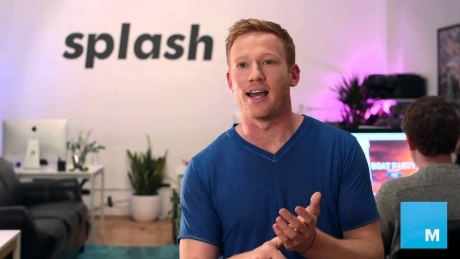
Ben Hindman
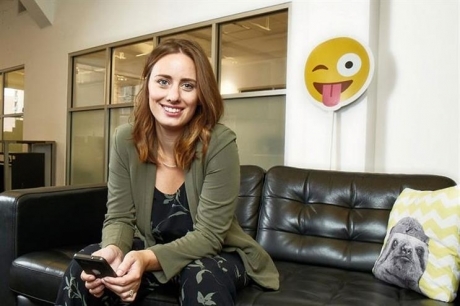
Marissa Aydlett
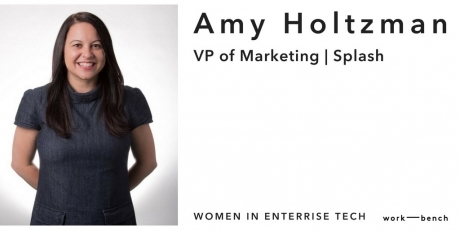
Amy Holtzman
August 15, 2018
Radio Recap: The Entertainment Gap
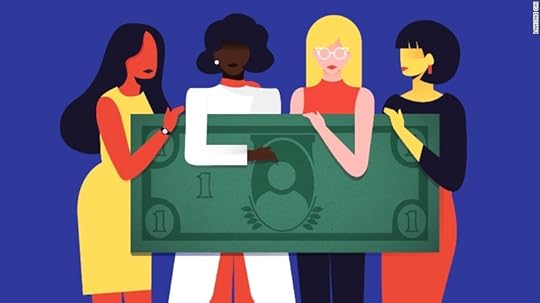 Earlier this year, Academy Award Best Actress-winner, Frances McDormand, said two words that shook up Hollywood: “INCLUSION RIDER.” To further highlight Hollywood’s inequality problem, two studies from the University of Southern California’s Annenberg School of Journalism came out this year, both re-confirming the fact that Tinseltown is still predominantly “pale and male.”
Earlier this year, Academy Award Best Actress-winner, Frances McDormand, said two words that shook up Hollywood: “INCLUSION RIDER.” To further highlight Hollywood’s inequality problem, two studies from the University of Southern California’s Annenberg School of Journalism came out this year, both re-confirming the fact that Tinseltown is still predominantly “pale and male.”
But the problem doesn’t end onscreen or behind the camera— thesame “pale and male” domination is true of film critics. One study revealed that over 77% of all reviews for the top 100 movies of 2017 were written by men. While, in contrast, 22% of reviews were written by women. The other study found that 30 movies featured a male 45 years of age or older whereas only 5 films depicted a female in the same age bracket. And only one movie across the 100 top films of 2017 was led by a woman of color 45 years of age or older.
Also lacking from the top-grossing movies of 2017 was ANY portrayal of a woman in a top-level business, financial, legal or journalism job—zero lady bosses represented. Is Hollywood hurting working women across all sectors?
Here to discuss the Entertainment Gap is the originator of the inclusion rider, Founder and Director of the Annenberg Inclusion Initiative, Dr. Stacy L. Smith, along with Annie Yu, the Director of Training & Enablement; Diversity & Inclusion Champion at Vox Media.
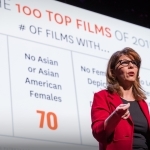

August 8, 2018
Radio Recap: Science Fair—The Documentary

“Seven million compete but only one will win.” That’s the premise of Cristina Constantini and Darren Foster’s award-winning documentary, Science Fair. Science Fair follows nine children around the world on their journey to Intel’s International Science and Engineering Fair—otherwise known as ISEF. Each May, more than 1500 students from roughly 70 countries and territories compete at ISEF for scholarships, tuition grants, internships,scientific field trips and the grand prizes, including one $75,000 and two $50,000 college scholarships. ISEF is the Olympics of science fairs. It’s the biggest and most prestigious science competition in the world. Above and beyond volcanoes made with baking soda (and by a parent), the kids who compete in ISEF are doing top-level research. As of 2012, seven ISEF alumni went on to win Nobel Prizes.This year Science Fairtook home the 2018 Sundance Festival Favorite Award as well as the SXSW Audience Award.
Discussing their Science Fair documentary and our future science leaders of tomorrow were directors Cristina Constantini and Darren Foster. As well as Dr. Serena McCalla, who worked as the science research coordinator for Science Fair.

Dr. Serena McCalla

Cristina Constantini + Darren Foster
August 1, 2018
Radio Recap: Digital Knowledge Management
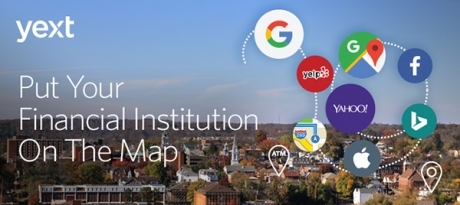
Once upon a time a business website was the centerpiece of a consumer’s digital experience. Now 73% of traffic is happening offpersonal websites. Search engines, maps, directories, voice, and chat interfaces have created a new channel where customers can engage with brands and it’s just as important to manage these services as it is your own website. This is where digital knowledge management comes in. Digital knowledge management, or DKM, can be one of the most important marketing tools in your digital marketing toolbox. Having correct information everywhere drives customers to your business, and ultimately improves your bottom line. In 2016 alone leading digital knowledge management platform Yext found that its customers generated over 300 million phone calls and over 600 million requests for driving directions from third-party resources. If customers are searching for how to get to your business, they want to go, and you want them to be able to find you. With the rise of intelligent systems, machine learning, innovation, and competition digital knowledge management are more critical than ever, yet too many companies have still not made either a priority. Here with me to discuss digital knowledge management is Owen Fegan, the Creative Director of Yext.
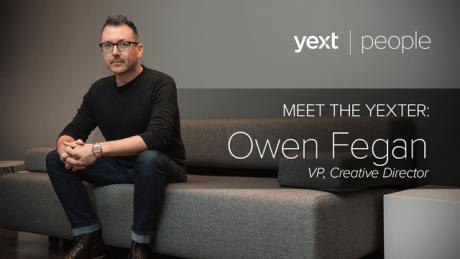
July 25, 2018
Radio Recap: Partnering Up

William Procter and James Gamble, Henry Wells and William Fargo, Ben and Jerry, Penn and Teller — these are just a few successful business partnerships— and they’re all men. But partnerships provide an underutilized and effective tool for female-run startups because, for one, women understand the need for flexibility, especially considering that 66% of family caregivers are female, so most women need workplace flexibility in a unique way. Also the imposter syndrome affects women in business in a deeper way than their male counterparts. Having a partner can help build confidence. There’s also less pressure to act a certain way reciprocal support must exist for the partnership to work. When the connection between the partners is healthy, the overall entity is healthy. Generally speaking, the same is not true for male partners, who tend to measure success by revenue and results. Today I’m here with two sets of female partners killing it in their respective businesses. Gena Mann and Carizza Tozzi make up Wolf + Friends, a modern commerce and content platform for families with special needs kids. Also here with me are Brooklyn Decker and Whitney Casey, co-founders of Finery, a wardrobe app that allows users to view and organize their closet digitally and uses predictive analytics to find the best style.
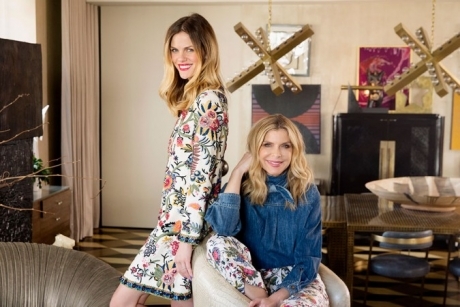
Brooklyn Decker + Whitney Casey
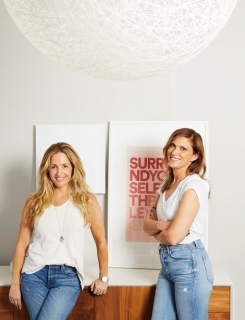
Gena Mann + Carissa Tozzi
July 17, 2018
Radio Recap: Self-Made Women
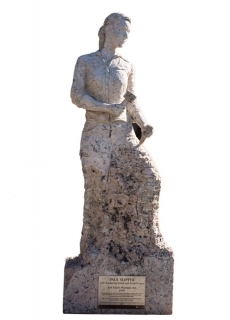
Paul Slipper’s Self-Made Woman installation
What does it mean to be “self-made”? Forbes magazine has been receiving all sorts of opinions on the matter after featuring Kylie Jenner as the youngest “self-made billionaire” on its cover. Everyone from her sister, Kim Kardashian, to Webster’s Dictionary has chimed in with their thoughts on what it takes to be “self-made” means. According to Wikipedia, the phrase was first coined in 1832 by US Senator Henry Clay to describe men in the manufacturing sector whose successes lay within the individuals themselves, and not from outside conditions. But by the mid-1950s, “self-made” generally implied “business success” regardless of how one came up. Regardless of how you think of “self-made,” according to the 2017 “World Ultra Wealth Report,” self-made individuals have been mainly men. Now there are a number of women making giant waves in finance, science, and in net worth.
I spoke with two self-made women turning the tables in their respective fields: Frida Polli is a Harvard + MIT trained neuroscientist turned CEO and co-founder of Pymetrics, which uses AI to help global clients match candidates with their ideal jobs, while removing bias from the hiring process. Dottie Herman was just listed as one of “America’s Richest Self-Made Women in Real Estate,” in Forbes. Dottie climbed to the pinnacle of the housing industry in only two decades as the CEO of Douglas Elliman. Today, Dottie is the most influential woman in real estate.
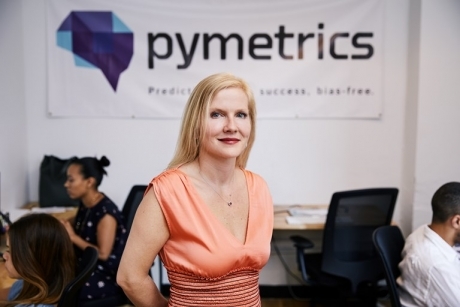
Frida Polli
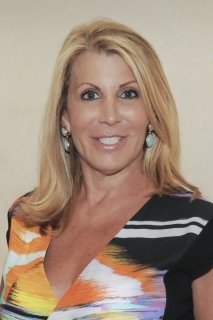
Dottie Herman
July 10, 2018
Radio Recap: Venture Capital by the Experts
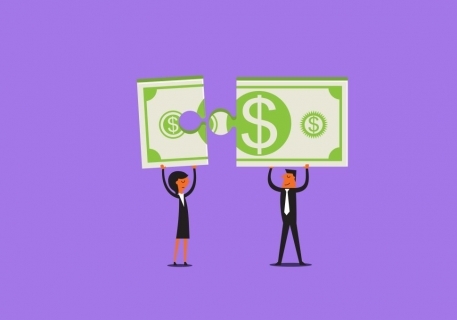
Jay-Z, Madonna, Kobe Bryant and Ellen DeGeneres are just a few big names who’ve made waves in venture capitalism. Nowadays it’s not uncommon to see Olympic athletes setting up incubation funds, baseball legends investing in video conferencing services, rappers funding seed-stage tech, and heavyweight champions backing recruitment startups. While some go it alone as angel investors, the majority of successful investors chose to be part of bigger investment funds dabbling in venture capital. With some investments coming back ten fold, it’s no wonder why celebrities want to be a part of the potentially lucrative and exciting world of startups and entrepreneurialism. But for entrepreneurs, raising money is anything but exciting—for them it can be downright excruciating. Data from the Global Entrepreneurship Monitor shows that more than 80% of funding for new businesses comes from personal savings and friends and family. According to the Kauffman Foundation, the average cost to launch a startup is around $30,000. The glamour of many jobs often appear greater from the outside than the inside, and being aVC is definitely no different. Here with me to discuss venture capital from the experts are David Mars of White Owl Capital and Arlan Hamilton of Backstage Capital.
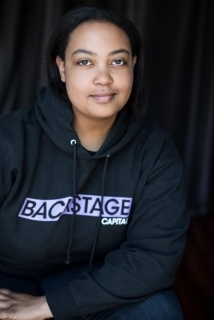
Arlan Hamilton

David Mars
June 27, 2018
Radio Recap: LGBT Business Enterprises

Happy Pride Month! New York City’s 50thannual Pride March celebrated the LGBTQ+ community with over 40,000 marchers and 100 floats, all celebrating this year’s theme, Defiantly Different. The NYC Pride co-chair said the theme was showcasing the power in all the defiantly different LBGT community members. Standing defiantly different in solidarity, we’re showcasing LBGT businesses and owners on today’s show.
According to a National Gay and Lesbian Chamber of Commerce report in 2016, only 909 of the nearly 28 million small businesses in the US were certified LGBT Business Enterprises (a.k.a. LGBTBEs). To qualify as a LGBTBE, a business must at least 51% owned, managed or operated by an LGBT person. Even though LGBTBEs make up less than 1% of small businesses,and though almost half of all start-ups don’t make it to 4 years according to the Statistic Brain Research Institute, the 909 certified LGBTBEs have been around for an average of 12 years, and at least 15% of these businesses were founded over two decades ago. So why do LGBTBEs find more success, and who’s behind them? Here with me to discuss LBGT business is Senior Vice President of the National Gay and Lesbian Chamber of Commerce, Jonathan Lovitz. Also, joining is Robert Geller, owner of InstanTek, an LGBT-owned, full-service IT department focused on helping LGBT-owned small businesses.
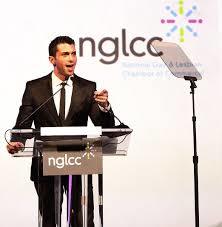
Jonathan Lovitz of NGLCC

Robert Geller of InstanTek
June 20, 2018
Radio Recap: Destigmatizing Depression with Dave Kerpen

Two weeks ago we lost two well-known American founders to suicide. Both Kate Spade and Anthony Bourdain took their own lives after years of struggle with mental health, sadly their experiences with depression are far from uncommon for entrepreneurs. In May 2015, 31 year old Austen Heinz, CEO of Cambrian Genomics took his own life. 26 year old Aaron Schwartz, a partner at Reddit, hung himself in 2013. 47 year old Jody Sherman, founder of Ecomom shot himself that year. And there are many, many more. According to a study at UC San Francisco, 1 in 3 entrepreneurs live with depression, and 45% of entrepreneurs report being stressed more compared to 42% of employees. In 2010, suicide was the highest cause of death for people aged 15-49, In 2016, nearly 45k lives were lost to suicide and the CDC reports there’s been a 30% rise in suicides in America since 1999. Discussing destigmatizing depression is the CEO of UMA Health and founder at Likeable Media, Dave Kerpen.




